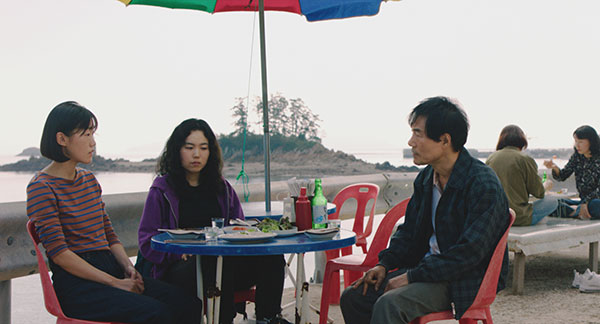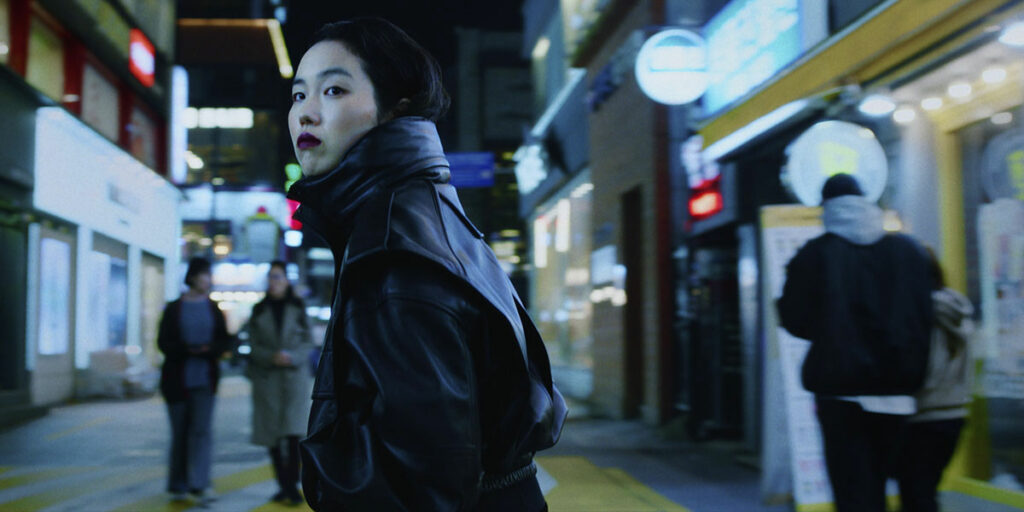Davy Chou’s Return to Seoul is honest, delicate, and complex, painting a portrait of contradictory emotions and fragmented family ties amidst adoptive abandonment.
In the past, French-Cambodian filmmaker Davy Chou dwelled on the Khmer Rouge’s reign of terror during the years 1975 and 1970 in his documentary Golden Slumbers (2011) and the Koh Pich in Diamond Island (2016), both films containing a significant amount of thematic heft, even with their faults. However, it is in his third feature where Davy feels he’s pursuing a more intimate and thought-provoking narrative. He turns to Cannes once again after plenty of years to present his new film Return to Seoul (formerly known as All the People I’ll Never Be). There’s a distinction between the two titles. The previous one calls your attention more and adds a sense of relatability; however, at the same time, it is ambiguous as to what the journey may behold. Its newer title, Return to Seoul, fits perfectly with the story and themes it wants to expand upon. Davy Chou intends to paint a portrait of the various emotions crawling in the minds and hearts of adopted children, presented by the possibility of knowing their biological parents and finding out their reason for that harsh decision.
Once one has decided to find their respective biological parents, there’s a movement toward inexplicable emotions, which the person might not be ready for. Return to Seoul centers around a woman, the twenty-five-year-old Freddie (Park Ji-min), short for Frederique, who was born in Korea but adopted as a baby by a French couple. The first sight of the film’s lead is her arrival in Seoul, where she made the decision out of thin air to go there due to her canceled flight to Japan. With these first instances, including a remarkable restaurant encounter with two strangers (as she talks in a combination of English and French since she doesn’t speak Korean), the audience already knows Freddie’s charismatic, quick, and magnetic behavior and demeanor. She plans to spend a couple of weeks in Korea, embracing her inner impulsivity. What drove Freddie to make this impetus decision? Although she initially neglects it, the purpose is to reconnect with her roots and potentially find her “true” family.
Her plans are half-formed, as Freddie doesn’t know what exactly will happen once she finds what she is looking for. In fact, she doesn’t even know where to even begin searching for them. That’s where Tena (Guka Han) comes in, a worker at the inn she’s staying at during her stay and encourages her to visit the city’s biggest adoption agency for a chance to contact her birth parents. A photograph and a social security number are the first two items that mark Freddie’s way to finding her true nature. The adoption agency sends telegrams to the respective parents, marking the beginning of an almost decade-long and complicated journey for the young Frederique. Davy Chou handles Return to Seoul with delicacy, honesty, and the right amount of confident complexity to ensure the story is told in the most grounded way possible, without dwelling on melodrama or theatrical embellishments. It takes an unconventional, sometimes wounding approach to a story that we have seen plenty of times, but this time it feels different than the ones that came before it.

Freddie’s journey isn’t predictable; the story’s rhythm and pacing capture the evolution of her connection with her roots but don’t resolve them. Even in the lengthy time that this narrative takes place, there’s still an aching in her heart that wants more emotional resolution and culmination. This isn’t your regular story about a person finding a new home or the one you were born in, to begin with; on the contrary, Return to Seoul is more about capturing the sentiment of not having one, or at least a home that isn’t fragmented into oblivion. That fragmented state isn’t presented via the fractured past and family dysfunction between a father filled with guilt and an emotionally inaccessible mother, but Freddie’s own fractured state of mind – experiencing contradictory emotions, standing between two far-away countries (France and Korea). The use of a time jump further helps the audience feel the inner angst she is experiencing, slowly developing into a combination of restlessness and slight content. The film can feel disjointed because of those time lapses, barely disorienting the viewer. Nevertheless, it provides a deeper visualization of how time heals, or further injures, emotional wounds.
The intricacy and complexity of individuality and culture are prioritized instead of tending to the usual cinematic shticks of resolving characters’ situations within days or weeks’ time. There’s also the essence of youth amidst a traditional patriarchal household, where Freddie’s actions of escapism via flings and drinks intertwine with scenes of melancholic acceptance. The movie contains several funny moments; it is not all sad and dreary. However, its core is a broken heart slowly being mended together. By the time it reaches the endpoint, the viewer feels as if Freddie garners a sense of finality and irrevocability.
With Return to Seoul, Davy Chou experiments with what we know of these types of stories, implementing a sense of humanism and restraint while adding layers to its main character as her journey transgresses. Of course, it all wouldn’t work without non-actor Park Ji-min’s performance, who does a balancing act between emotional unsureness and palpable confidence. Many people will be attached to this film due to its relatable approach to broken family ties. Return to Seoul pulls your heartstrings more and more as it keeps going. And, although its disjointedness affects some scenes, you are so engaged with the story that it doesn’t bother you in the least.
Return to Seoul premiered at TIFF on September 9, 2022 and was released in select US theaters by Sony Classics on February 17, 2023. The film will be in cinemas in the UK & Ireland from May 5 and on MUBI from July 7.

